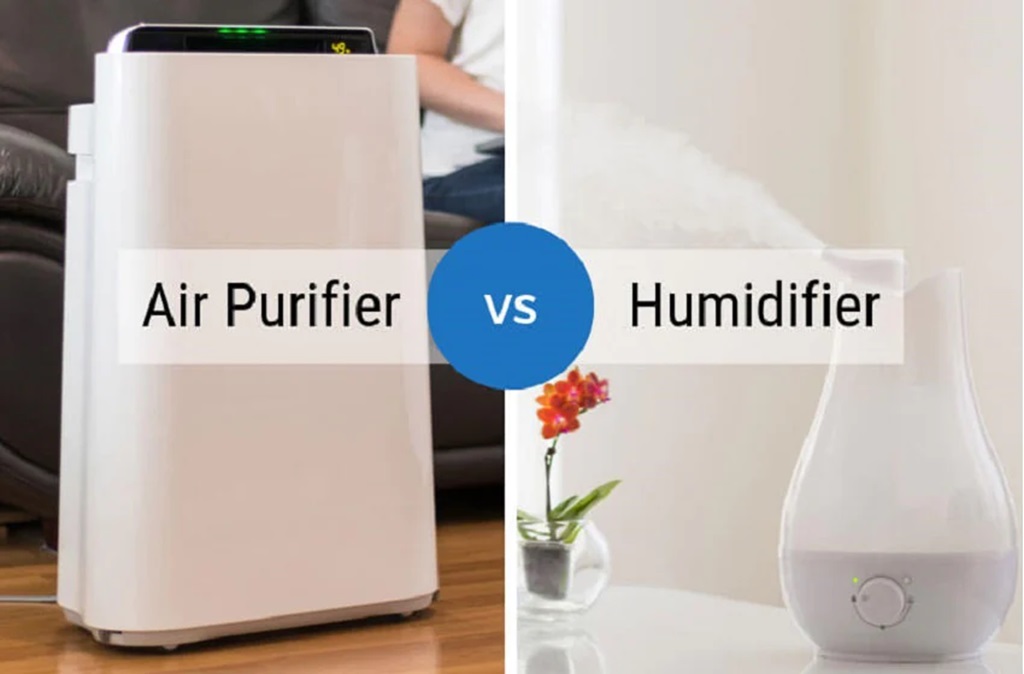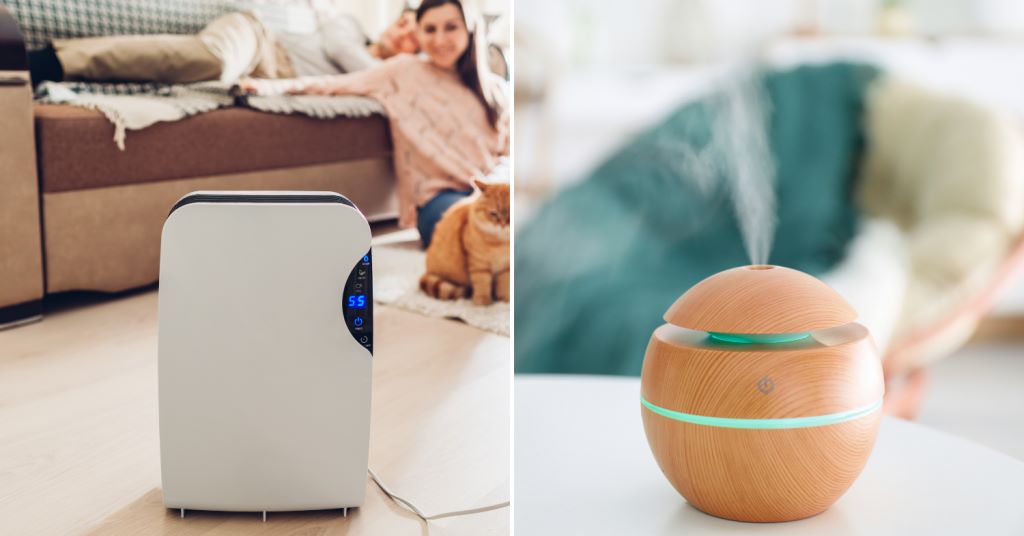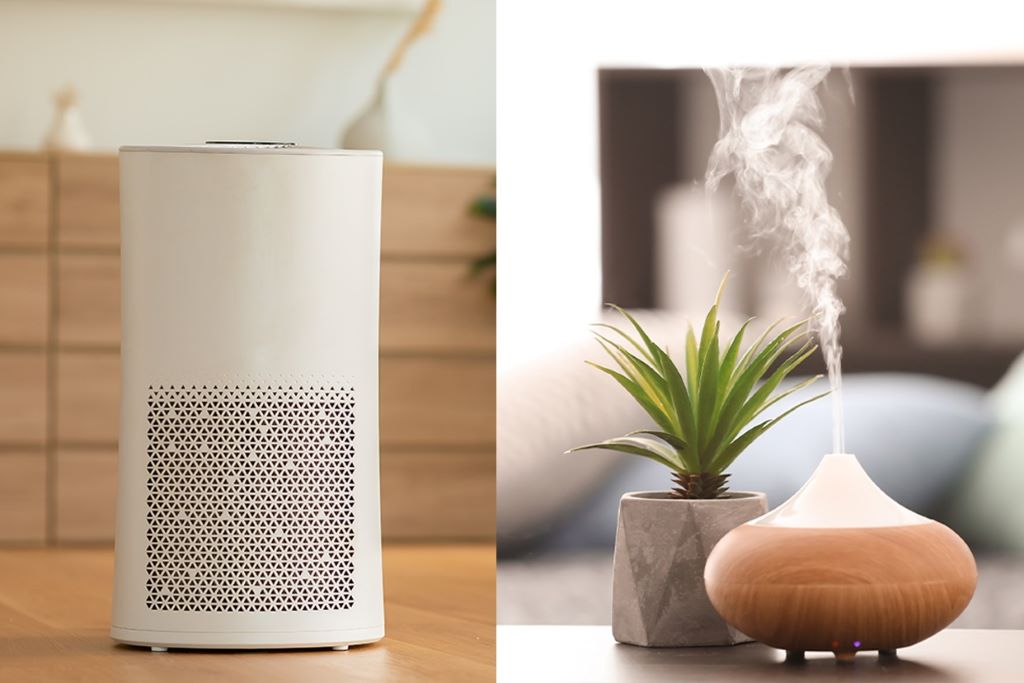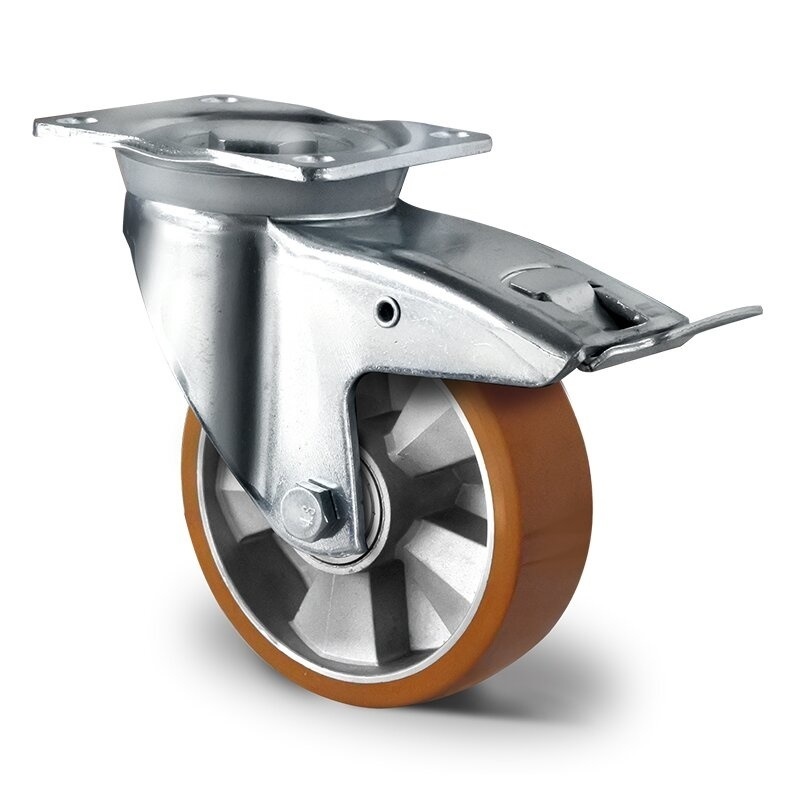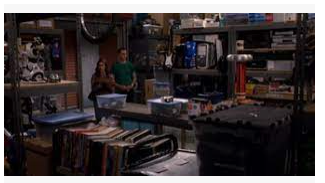After conducting some research, I discovered what is the difference between an air purifier and a humidifier. Although they both aim to improve the air quality in your home, they serve different purposes. If you’re considering purchasing one of these devices, it’s important to understand their differences. An air purifier is designed to remove pollutants and allergens from the air, while a humidifier adds moisture to the air to combat dryness.
Let me clear the air about what exactly air purifiers and humidifiers do so you know which one is right for your needs. This handy guide will compare and contrast these two popular home gadgets. Finally, you’ll be able to answer the question: air purifier or humidifier?
The Primary Purpose of Air Purifiers
First things first, air purifiers are designed to remove pollutants and allergens from the air. I don’t know about you, but where I live, poor outdoor air quality from vehicle emissions and wildfire smoke is a big problem. Plus, I have a cat at home, so animal dander and dust can build up inside too. No bueno for my allergies!
Air purifiers use a few different filtration methods to clean the air:
- HEPA (high efficiency particulate air) filters trap tiny particles like dust, pollen, mold, and pet dander. They can capture particles as small as 0.3 microns with 99.97% efficiency. Pretty impressive!
- Activated carbon filters absorb odors, smoke, volatile organic compounds (VOCs), and gaseous pollutants that HEPA filters miss.
- Some models also use UV light to kill germs and neutralize chemicals.
By continually drawing air through these specialized filters, air purifiers remove all types of airborne nasties before circulating clean air back into your home. This makes the indoor environment less irritating for allergies and asthma. Some studies even suggest using an air purifier could reduce the risk of airborne infections.
What’s The Purpose of Humidifiers Then?
In contrast to air purification, humidifiers have one main aim: restoring moisture to dry indoor air. During the winter when heaters are blasting, or in naturally arid climates, the air inside can get extremely parched. We’re talking as low as 10% relative humidity, compared to the ideal of 30-50%.
Such bone-dry air can lead to a host of annoying issues like:
- Chapped lips and dry skin
- Itchy eyes and throat
- Increased illness risk
- Damaged furniture and wood floors
- Static electricity zapping you whenever you touch metal doorknobs
Not fun! Humidifiers counteract low humidity by using a wick filter, cool mist, or steam to release water vapor and make the air less Sahara-like. This alleviates sore throats, bloody noses, and other symptoms caused by excessively dry conditions inside.
Depending on the type and size, a single humidifier can typically provide enough moisture to adequately humidify 1-2 average rooms in a home. Unlike air purifiers which actively filter air, humidifiers more passively humidify the surrounding space.
Humidifier vs. Air Purifier: Key Differences Summarized
Now that you know the basic premise behind air purifiers and humidifiers, let’s recap the main ways they differ:
- Purpose: Air purifiers remove contaminants from the air, while humidifiers add needed moisture.
- Method: Air purifiers actively draw air through filters to trap particles; humidifiers passively release water vapor to humidify.
- Coverage area: Larger capacity air purifiers can filter air for an entire home, while most humidifiers only cover 1-2 rooms effectively.
- Location: Air purifiers work well placed in a central, open location allowing air circulation through the home. Humidifiers operate better in closed smaller rooms maximizing moisture efficiency.
- Impact: Air purifiers improve indoor air quality by eliminating allergens/pollutants, while humidifiers alleviate problems caused by excessively dry air.
As you can see, air purifiers and humidifiers shouldn’t really be compared directly. It’d be like asking what’s better, a broom or a mop? Both are useful home cleaning tools but designed for totally different specific functions. Get what I’m saying?
5 Signs You Need an Air Purifier Over a Humidifier
If you’re still unsure whether to get an air purifier or humidifier, think about what problems you’re experience inside your home. Pay attention to these five signs suggesting an air purifier should take priority over a humidifier:
- You have allergy, asthma, or respiratory issues that flare up more often at home. Reducing exposure to indoor airborne allergens and pollution with an air purifier can help minimize symptoms.
- There are smells like cooking odors, pet smells, chemicals, or cigarette smoke that tend to linger persistently inside. An air purifier with activated carbon filtration can help absorb these stubborn smells.
- You notice more dust accumulation requiring frequent cleaning, especially on electronics screens and furniture. An air purifier traps airborne dust particles and dander reducing rates of dust buildup.
- You live in a region prone to outdoor smoke from wildfires, agricultural burning, vehicle exhaust, or industrial pollution. Drawing smoky outdoor air through specialized filters removes particulates for cleaner indoor air quality and visibility.
- Your home is more prone to mold growth from excess moisture, flooded basements, musty windows or bathrooms, etc. Air purifiers filter out mold spores and use UV light to prevent mold spread and growth on surfaces.
If you didn’t experience issues like these above that indicate poor indoor air quality, an air purifier may not be that useful. Think about turning to a humidifier instead if dryness discomforts like scratchy throats or cracked skin are your main problem.
When Do You Need a Humidifier Rather Than an Air Purifier?
On the flip side, prioritize buying a humidifier over an air purifier if you notice these signs of overly dry air at home:
- Your lips, hands, eyes, throat or nasal passages feel uncomfortably dry, no matter how much water you drink or lotion you apply. Cranky respiratory membranes and skin beg for air with more moisture content.
- You get painful static electricity shocks frequently when walking across carpets or touching metal objects. Very dry air prevents static charge dissipation leading to nasty zaps.
- Your hardwood furniture and floors are starting to show small cracks, gaps or white speckled patches. Low humidity causes wood to shrink and dry out faster damaging intricate objects.
- You wake up congested with sinus headache pressure or bloody noses overnight. Lack of moisture allows membranes to dry out clogging sinuses. Proper humidity lets you breathe and sleep easier.
- Cold and flu viruses seem to spread quickly and linger for ages in your household every winter. Dry air disables the immune system’s mucous membranes increasing illness transmission risks.
If one or more of those dry air woes sound familiar, then buying a humidifier should be high on your shopping list. Ditch the idea of an air purifier for now until your humidity issues improve.
Which Rooms Should Have an Air Purifier or Humidifier?
We’ve covered the hallmark signs indicating you should buy an air purifier versus humidifier. But where exactly should you put these appliances in your home to maximize benefits?
For air purifiers, choose a central, open living area on the most frequently used level of the house. The great room, living room or open kitchen layout found in modern floor plans allows efficient air circulation. Bedrooms can work too, but may be isolated from greater air flow patterns.
Larger, more powerful air purifiers with higher Clean Air Delivery Rates (CADR) can effectively filter every room. More compact units are best suited only for the room where placed. So check the technical specs before buying to get one matched appropriately for your space.
Humidifiers work a bit differently for moisture distribution. It’s best to use humidifiers in closed smaller rooms where you spend the most time like bedrooms or offices. These spaces can better concentrate vapor levels compared to giant cavernous great rooms with external walls.
Place humidifiers close to problem areas too. Put one near your headboard to ease congestion and bloody noses overnight. Or place one where you sit frequently to combat annoying static zaps.
No matter which appliance you choose – air purifier or humidifier – be sure to keep them elevated off the floor for better performance. Air and moisture distribute and circulate best when dispersed from higher locations allowing gravity to spread evenly top to bottom.
Air Purifiers and Humidifiers: Enhance Effectiveness by Using Both
Up until now we’ve compared air purifiers OR humidifiers – one over the other. But you know what works even better? Yup, using both types of appliances in your home for clean AND balanced air.
I know you might balk at the extra cost. But hear me out…
Even the highest performing air purifier can’t function properly in overly dry rooms below 30% relative humidity. The excess static causes particle filtration to decrease by up to 50%! So staying on top of adequate moisture levels helps your pricey air purifier work like it should.
And though humidifiers restore needed humidity, they can multiply airborne mold, fungi and bacteria growth along the way. Ew! Running an air purifier prevents spread of these gross microbes exacerbated by added moisture.
It’s a perfect symbiotic relationship! Air purifiers ensure humidification doesn’t spawn a microbiology petri dish. While humidifiers enable peak air purifier filtering capabilities free of static interference. Pretty cool right?
Using both appliances better protects your home as well. Wildfire smoke and pollution tends to peak when outdoor air is hot and moisture starved – exactly when indoor air also grows driest. So you’ll want all lines of defense working optimally.
If going all in seems overkill, at least get the appliance matching your most pressing issue – air purification or humidification. Then down the road consider adding the other type for enhanced protection.
Your future lungs and wood floors will thank you!
FAQs
- Do air purifiers and humidifiers use a lot of electricity?
On average most standard sized units only draw between 50-150 watts on medium fan speed. That’s about the same as an old incandescent light bulb. So running them 24/7 generally adds just a few dollars per month to electricity bills. Energy efficient HEPA air purifiers and ultrasonic humidifiers tend to use less power than other types too.
- How often do air purifiers and humidifiers need filter replacements or cleaning?
For air purifiers, most manufacturers recommend replacing the HEPA filter about once a year based on runtime hours. Pre-filters catching larger particles usually need replaced every 2-4 months. Humidifiers need cleaning every 1-2 weeks to control mold and mineral buildup from tap water. Follow individual manual guidelines for optimal operation.
- Can I run air purifiers and humidifiers safely overnight and while away?
Yes absolutely. In fact running them round the clock provides maximum clean air and humidity benefits. Just take common sense precautions like keeping appliances away from beds, drapes or furniture that could block intakes. Make sure they sit evenly on water-resistant surfaces too. And confirm your model is designed to run 24/7 before doing so.
- Do air purifiers and humidifiers produce ozone or other pollutants?
A small minority of obsolete air cleaning devices intentionally emit ozone trying to replicate nature’s cleaning and odor removal. But ozone generation has proven ineffective and harmful by all major public health organizations. When buying an air purifier, double check the product specifications state zero ozone emitted. All modern humidifiers only release clean water vapor with no dangerous byproducts.
- Will an air purifier or humidifier totally eliminate the need for dusting, vacuuming or other cleaning?
I wish I could tell you yes! But unfortunately both appliances do an awesome job improving air quality and moisture levels – not eliminating cleaning. While air purifiers trap tons of airborne dust and dander, settled particles still require regular wiping, vacuuming and surface cleaning for sanitary homes. And humidifiers can combat static and shrinkage of furnishings but won’t prevent wear and tear damage without care.
Let’s Wrap Up
We’ve covered what is the difference between an air purifier and a humidifier here! To recap, air purifiers and humidifiers serve very different but equally useful roles: filtering air versus hydrating air.
Air purifiers actively scrub the air clean removing allergens, pollutants, odors and more. Humidifiers passively pump out water vapor to counteract health and home issues caused by overly dry indoor air.
If you find your central heat blowing cold air, understanding the intricacies of your heating system is crucial. Now that you know precisely what each appliance does, thinking critically about your indoor air quality and humidity issues will determine whether a malfunction or imbalance is causing the unexpected chill, and using both air purifiers and humidifiers symbiotically helps maximize home air health.
So are we all clear on the difference between air purifiers and humidifiers now? Or lingering haze still fogging up the decision on which route to take? Let me know if you have any other questions! I’m always happy to chat more and help you breathe easier.

